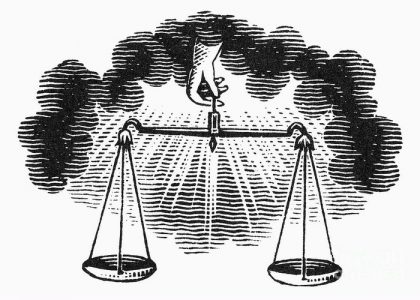 Last week the political campaign of 2020 Democratic presidential candidate Elizabeth Warren “intentionally” posted an ad containing false claims on Facebook as a way to test the social media platform’s policies on political advertising. On Twitter, Warren announced to her followers, “We intentionally made a Facebook ad with false claims and submitted it to Facebook’s ad platform to see if it’d be approved. It got approved quickly and the ad is now running on Facebook.” The ad, shown above or at left, ran under the headline “Breaking news: Mark Zuckerberg and Facebook just endorsed Donald Trump for re-election,” a claim that the ad itself admitted wasn’t true. “You’re probably shocked, and you might be thinking,” the ad continued, “‘how could this possibly be true?’ Well, it’s not. (Sorry.) But what Zuckerberg *has* done is given Donald Trump free rein to lie on his platform––and then to pay Facebook gobs of money to push out their lies to American voters.”
Last week the political campaign of 2020 Democratic presidential candidate Elizabeth Warren “intentionally” posted an ad containing false claims on Facebook as a way to test the social media platform’s policies on political advertising. On Twitter, Warren announced to her followers, “We intentionally made a Facebook ad with false claims and submitted it to Facebook’s ad platform to see if it’d be approved. It got approved quickly and the ad is now running on Facebook.” The ad, shown above or at left, ran under the headline “Breaking news: Mark Zuckerberg and Facebook just endorsed Donald Trump for re-election,” a claim that the ad itself admitted wasn’t true. “You’re probably shocked, and you might be thinking,” the ad continued, “‘how could this possibly be true?’ Well, it’s not. (Sorry.) But what Zuckerberg *has* done is given Donald Trump free rein to lie on his platform––and then to pay Facebook gobs of money to push out their lies to American voters.”
The “free rein” Warren was referring to, according to The New York Times, was the recent purchase of ads across social media by Trump’s campaign that accused another Democratic presidential candidate, Joseph Biden, of corruption in Ukraine. That ad, viewed more than five million times on Facebook, falsely said that Biden offered $1 billion to Ukrainian officials to remove a prosecutor who was overseeing an investigation of a company associated with Biden’s son Hunter Biden. (One thorough assessment of the truthfulness of the Trump ad was published on the website FactCheck.org.) This past week, the Biden campaign demanded that Facebook, Twitter and YouTube take down the ad. Facebook refused, telling the Biden campaign that it would keep the Trump ad up because of its belief that statements by politicians add to important discourse and are newsworthy, even if they are false. Facebook has said that it allows ads made by politicians themselves (that is, their political campaigns), even if they are believed to be false, but scrutinizes ads for candidates made by third parties. Twitter and YouTube also kept the ad online.
That social media may be allowing ads to be run that are demonstrably false is one important issue. CNN and NBCUniversal refused to run the Trump campaign’s false ad. However, another important issue is Warren’s decision to counter one false ad with another. Warren claims her ad was meant to reveal Facebook’s preference of profit over truthfulness. “Facebook holds incredible power to affect elections and our national debate. They’ve decided to let political figures lie to you—even about Facebook itself—while their executives and their investors get even richer off the ads containing these lies,” she tweeted.
Although she may have had good intentions in submitting the ad to Facebook, there is something unsettling about countering falsity with falsity; as the old adage goes, “two wrongs don’t make a right.” Of course, most people would agree that false claims made in political advertising should be identified and brought to light. Commenting on the Warren ad, Subramaniam Vincent, Director of Journalism and Media Ethics at the Markkula Center for Applied Ethics at Santa Clara University, said in a tweet, “we need more ways for counter-speech to debunk deceptive speech in front of a real public.” Perhaps it’s best that “counter-speech” not resort to deception in order to counter deception. If the intentional airing of falsities to address prior falsities becomes acceptable in political discourse, then where does the normalizing of falsity end? To fight the propagation of such false advertising, educating the public seems like a logical solution; but what if such efforts fall on deaf ears? What should be done here?
Sources: cnet.com; nytimes.com

 Facebook has announced that it will begin testing the hiding of like counts from posts on user’s news feeds. Although authors will see likes on their own status updates, they will be unable to see the numbers of likes on updates posted by those who they follow. (They will still see the number of comments their followers’ posts get and be able to see the different emojis used to express likes on their posts.) According to
Facebook has announced that it will begin testing the hiding of like counts from posts on user’s news feeds. Although authors will see likes on their own status updates, they will be unable to see the numbers of likes on updates posted by those who they follow. (They will still see the number of comments their followers’ posts get and be able to see the different emojis used to express likes on their posts.) According to 